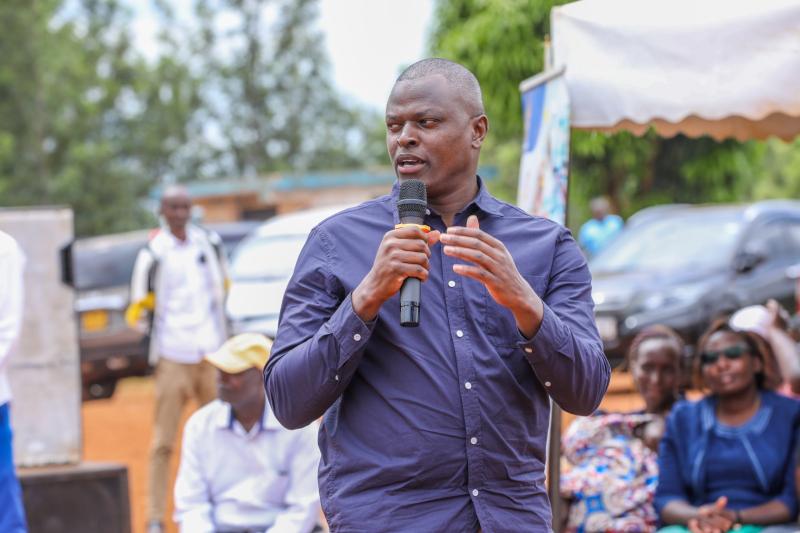Housing levy hurting Kenyans, not helping, says MP Ndindi Nyoro

Nyoro blamed the 1.5 per cent mandatory housing levy deducted from workers’ gross pay for reducing disposable income and lowering cash flow across the economy.
Kiharu MP Ndindi Nyoro has raised concern over the government’s housing levy, warning that it is hurting the economy rather than helping it.
Citing new data from the Kenya National Bureau of Statistics (KNBS), Nyoro noted that the construction sector, which had experienced steady growth for over a decade, shrank by more than two per cent in 2024. This dip came despite the government's push to build 200,000 affordable housing units annually.
The KNBS report linked the sector’s decline to rising building costs caused by higher prices for construction materials, labour, fuel, and transport. By the third quarter of 2024, a 50kg bag of cement was retailing between Sh720 and Sh1,250—an increase of 15 to 30 per cent compared to the previous year.
As a result, cement consumption dropped by 7.2 per cent, from 9.2 million tonnes to 8.54 million tonnes. At the same time, lending to the sector by commercial banks fell from Sh602.7 billion to Sh528 billion.
Nyoro blamed the 1.5 per cent mandatory housing levy deducted from workers’ gross pay for reducing disposable income and lowering cash flow across the economy. “People who would have sent Sh5,000 to their parents each month to help build homes or cover basic needs are no longer doing so,” he said.
He argued that the levy was first introduced with a refund promise, but later turned into a non-refundable tax that only made life harder for workers.
“The economy performed better when that money was left in people’s hands,” Nyoro insisted, questioning why the construction sector is weakening despite heavy investment in housing.
The KNBS report also showed a slight drop in employment within the sector, from 226,000 jobs in 2023 to 223,400 in 2024. Despite this, the government’s infrastructure projects continued, with tarmacked roads increasing from 23,000km to 24,900km.
Superhighways more than doubled, growing from 157km to 365km, driven by projects like the Dongo Kundu bypass and the Kipevu link road.
Nyoro welcomed the Treasury's recent move to review the housing levy and urged the government to consider scrapping it altogether.
Treasury Cabinet Secretary John Mbadi had admitted during a Senate session on June 5 that while the levy had benefits, the widespread dissatisfaction among workers could not be ignored.
Nyoro also criticised the decision to cut the education budget, warning that slashing funding for national exams would make access to education harder for children from poor families.
He praised the free education programme launched under former President Mwai Kibaki, saying it had allowed many families to educate their children and escape poverty.
His remarks followed a vote in Parliament to reduce the Sh11 billion capitation for national exams by Sh5.9 billion.
The move came after budget estimates excluded funding for the Kenya Certificate of Primary Education (KCPE), Kenya Certificate of Secondary Education (KCSE), and the Kenya Primary School Education Assessment (KPSEA).
“I’ve heard proposals that parents should contribute toward exam fees. But many families in Kiharu can barely manage to pay school fees,” he said while addressing parents at Mumbi grounds. “We must treat education as a national priority.”
Nyoro further raised concern over Kenya’s rising public debt, which he said has grown from Sh8.7 trillion in 2022 to Sh11.5 trillion in 2024—averaging over Sh1 trillion in new borrowing each year. He warned that the ballooning debt is placing an unbearable strain on ordinary citizens.
